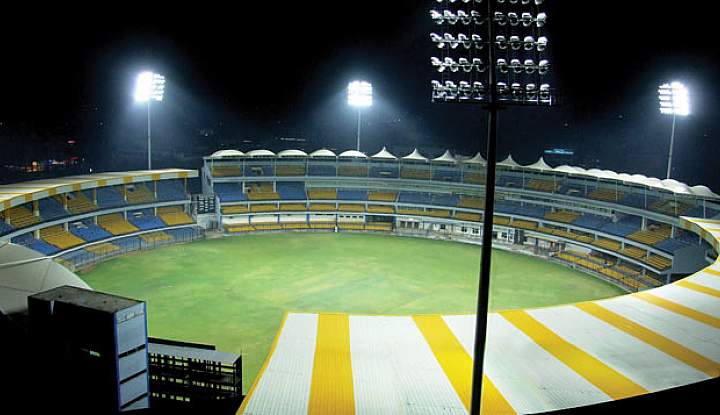On Wednesday, the BCCI announced that the second ODI between India and West Indies has been shifted from Indore to Visakhapatnam, and one of the crucial reasons for the same was the distribution of complimentary tickets. On the other hand, the Committee of Administrators (CoA) expressed helplessness in the matter and said they can’t tweak the Supreme Court order with regard to the number of complimentary tickets a host association can avail of – 10 percent of the total seating capacity of the stadium – while organizing fixture.

It has resulted in a virtual deadlock between the Board and its member associations regarding the hosting of international matches. Accordingly, the CoA has kept a backup venue for every center which is scheduled to host the India-West Indies matches.
Talking about the same to The Indian Express, CoA head Vinod Rai said, “Our hands are tied by the Supreme Court order. This is not our creation. When the opportunity was there to discuss this, first with the Lodha Committee and then before the Supreme Court, they (state associations) didn’t (raise the matter). Even now the clarifications (BCCI acting secretary) Amitabh Choudhary and TNCA have asked for (with regard to the certain clauses in the new constitution) don’t include this thing.”
ALSO READ: Second ODI Shifted From Indore To Visakhapatnam
He further added, “The games have to go on. We can’t cut a sorry figure. If some associations decide not to cooperate, we will have to look at alternatives. Backup venues are there. If they (MPCA) had spoken to the CEO (regarding the Indore match), he would have provided them with the solution. We are always open to discussion. There should be a willingness to work out the solution.”

It’s not that easy to relocate matches over the tickets issue, as was done in the case of the Indore ODI. It has been learned that state associations had a conference call about the issue on Tuesday and decided to stick to their customary complimentary tickets allocation. According to a source, the Hyderabad Cricket Association, the hosts for the second Test from October 12, is going to write to the CoA explaining the practical difficulties of implementing the new BCCI constitution which says 90 percent of the total seating capacity of a stadium should be put on public sale. With the first Test of the series starting in Rajkot on Thursday, the distribution of complimentary tickets is threatening to snowball into a big issue.
Cricket Association of Bengal (CAB) president Sourav Ganguly told this paper that his association “will have to give the complimentary tickets” that it has been giving in the past, and the CAB “cannot compromise” on that. On Wednesday, the Tamil Nadu Cricket Association (TNCA) also clarified that they, too, are unlikely to be influenced. The TNCA executive body would rubber-stamp the decision during its meeting on Thursday. Chennai is scheduled to host the third T20 International on November 11.
ALSO READ: Vinod Rai said the BCCI elections will happen in 90 days
Describing the same, former TNCA official said, “We have a meeting of our executive committee tomorrow, but as things stand, the TNCA is committed to life members, patron members etc. We can’t agree to 10 per cent. That’s impossible for us to conduct. We can’t avoid giving tickets to government agencies. We will not compromise on tickets like Sourav has said. It’s up to the BCCI to decide then (if Chennai will host the game).”
In the current scenario, Chepauk can accommodate 24,000 fans out which around 8,000 tickets are reserved as complimentary passes. Asked why didn’t the TNCA raise the issue, citing impracticability, when it moved court seeking clarification on certain clauses in the new constitution, the ex-office bearer said: “We focused on more important things. We thought these are practical issues which we can explain to them (CoA). Unfortunately, the CoA doesn’t have any experience of organising a match.”
The Maharashtra Cricket Association, the hosts for the third ODI on October 27, however, is proving to be an exception, as complimentary passes reserved there have always been less than 10 per cent of the total seating capacity.
